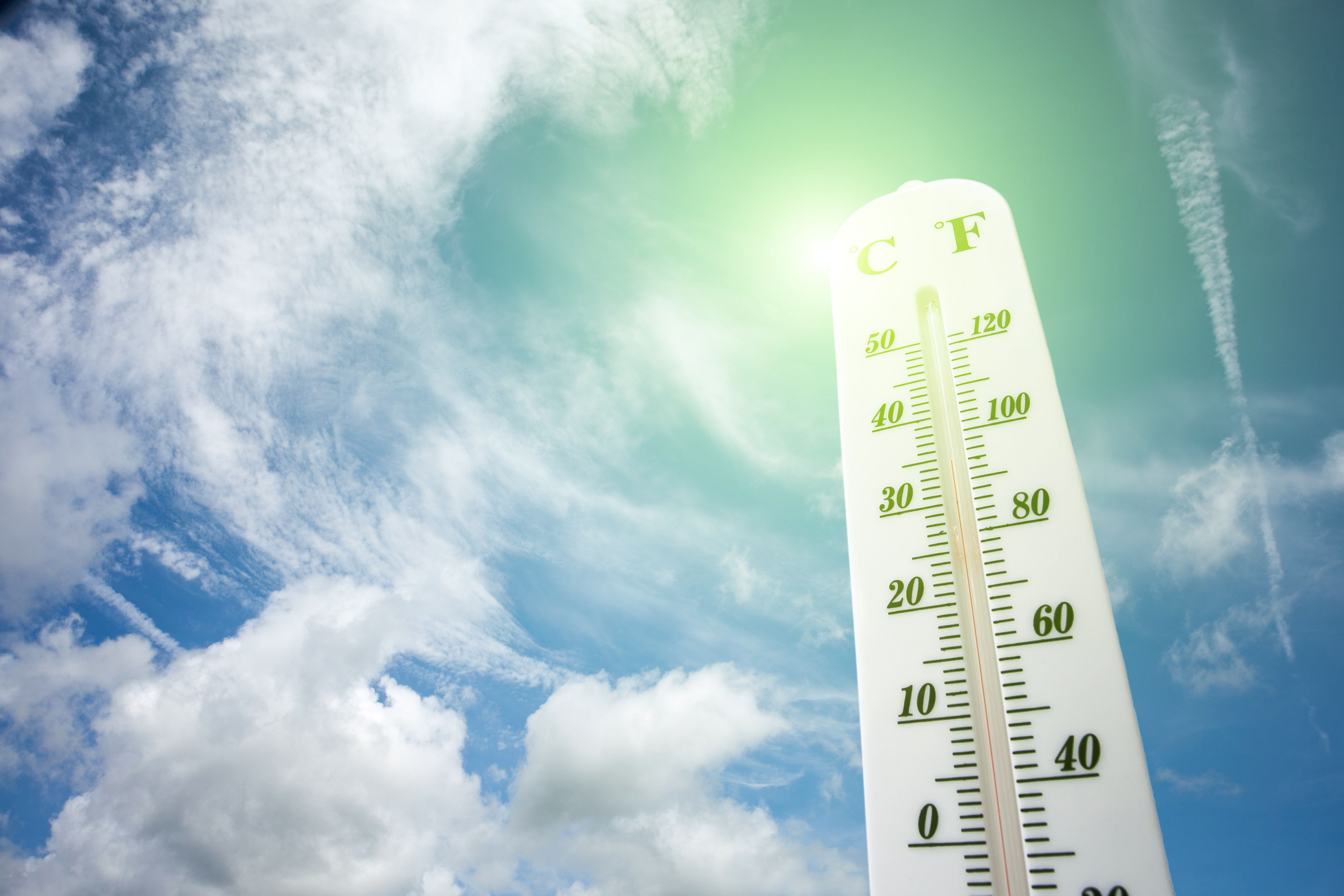
(Vienna, 22 July 2019) Since last weekend, temperatures throughout Austria are once again in excess of 30° C. According to the experts from the Central Institution for Meteorology and Geodynamics (ZAMG), this new heatwave will last for the next few days – which is bad news for many people. "During a heatwave, there is a significant increase in stress, anxiety and depression, primarily among older and frailer people but also among younger people who are not as fit as they might be. The prospect of not being able to escape the heat leads to mental problems, which should not be underestimated," explains Hans-Peter Hutter, doctor of environmental medicine at MedUni Vienna.
"It can even lead to panic attacks," says Hutter, "these people are truly afraid that something will happen to them and they will not be able to survive the stressful conditions." Mental problems can also be triggered by existential angst – this particularly affects farmers when there is a protracted spell of high temperatures. "Drought, forest fires and even the consequences of storms and hail and other freak weather events have a serious impact upon agriculture – and also upon those who rely on it for their livings."
Have your medication checked before a heatwave
Heat also affects people who are taking medication or have co-morbidities. A simple example is high blood pressure: "Those who suffer from high blood pressure and take medication for it should ask their doctors to check the dosage in good time, preferably before the summer starts. Heat expands the blood vessels, thus lowering blood pressure so that antihypertensives bring the blood pressure down even lower. This has to be allowed for and the dosage adjusted accordingly."
Heatwaves are becoming more protracted
And the situation will not improve in future: weather forecasting data for Austria show that, by the year 2050, heatwaves will last twice as long. In terms of numbers: the average heatwave (temperatures in excess of 30° C) in Vienna currently lasts for between three and five days but this is set to increase to between six and seven days by 2050. Hutter adds: "And the number of heatwaves will increase ten-fold by 2100. We might then see heatwaves, with tropical nights, that could last for weeks on end. Plus, with even higher temperatures than today."
Therefore, in addition to adaptation strategies, climate protection measures are urgently needed, stresses Hutter, mentioning a general energy transition and adaptive measures such as vertical and horizontal greening of buildings as efficient measures. "A plethora of concepts are available, they "just" need to be politically implemented. And as quickly as possible, without any further delay."
Stronger personal constitution as protection against the heat
But what immediate steps can individuals take to help themselves when the heat arrives? Prevention is important, stresses the expert. "The fitter you are, the better you cope with heat in general." However, this fitness has to be achieved before the heatwave strikes. Once the hot weather arrives, it is advisable to scale down your work and leisure activities accordingly and not overtax yourself. Light meals help, especially in summer, as do simple measures such as keeping the windows shut and curtains, blinds or shutters closed so that the heat cannot penetrate into the apartment. "People from southern climes show us what to do."
Air-conditioning units should only be installed by an air-conditioning technician, stresses Hutter, but fans that operate in a climate-neutral way and do not heat up the surroundings are a very good alternative. "However, simple air-conditioners generate heat in the environment and negatively impact the climate and sometimes, unfortunately, even cause carbon monoxide poisoning and, last but not least, impact the climate by their high electricity consumption." On top of that, the temperature differential between the outside and inside temperature should not exceed 6° C, as anything more than this is too stressful for the body. Innovative cooling solutions such as underfloor cooling – the opposite of underfloor heating – are recommended and are climate neutral.
Recommended reading: "Climate Change and Health. Effects. Risks. Outlook." Hans-Peter Hutter, Hanns Moshammer, Peter Wallner. Aspects of Science, MedUni Vienna at MANZ-Verlag, ISBN: 978-3-214-07803-4. 2017, 134 pages, €21.90. Buy online